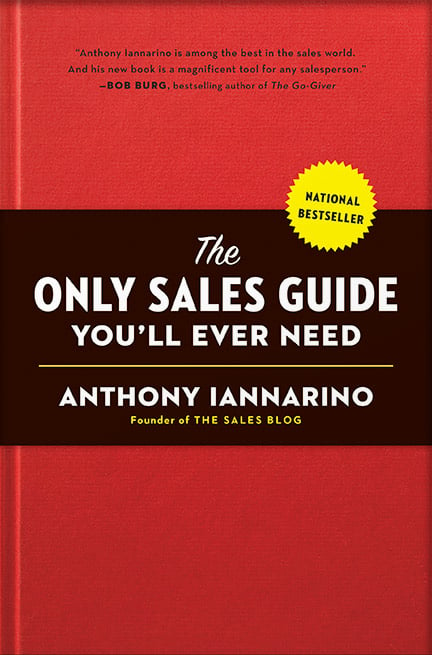The Gist:
- Too many salespeople still believe that consultative selling means asking the client about their pain.
- Approaches that don’t provide advice and recommendations aren’t valuable enough to call consultative.
- While questions and diagnoses are significant, they are only consultative in the hands of someone who can offer counsel, advice, and recommendations.
A recent comment thread on LinkedIn reminded me that a large number of salespeople define the word consultative inaccurately. The first line of the post said “The true nature of consultative sales is providing advice about the business decisions your contacts are making,” with an accompanying image stating “If your client knows everything you know, they are not going to need you.” It seems pretty clear that advice is central to being consultative, in line with the dictionary definition (“intended to give professional advice or recommendations”), but several commenters put forth other definitions.
One person argued that prospective clients needed “people who know what they know to help scale,” or “a seller’s enthusiasm and emotion to deliver engagement,” or simply “feet on the street, or a physical presence they cannot deliver.” He ended his comment with this valid point: “Value is not simply information.”
Your prospect may well need people who know their industry and can help them scale their production. Likewise, they may also need someone to bolster their confidence, so they can confidently move forward. They may also need to hire people. But these examples are about support and personnel—real needs, to be sure, but distinct from consultative advice or recommendations. Your clients already know what they need.
Another person commented, “The real issue is do you know everything your customers know and what their pain is?” He continued, “There is an incongruence in what people think conscreate valueultative selling is. Is not about what you know but about you getting to know the client.” He ended his comment with this analogy: “Think of a doctor or lawyer. They know as much as the other and yet they do not diagnose or represent themselves. Because they know the value is not in the knowledge. It is in the questioning and interpretation of the answers.”
This view has some more serious problems. For one thing, you never need to know everything your client knows. The person who has the need hopes you know something they don’t know. I would argue that knowing what your client’s pain is a rather shallow form of discovery, one that is generally used only to propose a solution.
What this commenter calls “getting to know the client and what their pain is” is simply a necessary prerequisite to offering your advice and recommendations. He is correct about the value of the questions, but not in the way that he suggests. The value of questions in consultative sales lies as much in teaching as in learning.


What Makes You Truly Consultative
Both commenters missed the point: what makes a salesperson consultative is that they provide advice about the business decisions their clients make. You create value when you help your client improve those decisions. As the original post suggested, simply duplicating your client’s knowledge makes you useless when it comes to advice: salespeople who want to be consultative must bring something to the table beyond a solution.
The point here is that asking questions and proposing your solution is not consultative. In fact, when all your questions are designed to suss out the client’s pain and the only advice you offer is “buy our solution,” all your client experiences is yet another commoditized discovery call, through which they must suffer like Tantalus—getting so close to potential value but forced to answer the same set of questions for all eternity.
Instead of just asking about pain points and recommending a pre-packaged solution, truly consultative salespeople extend their advice and recommendations to the entire decision-making process. Their advice advances the conversations necessary to enable a good decision, facilitating the buyer’s journey. Their questions will often illuminate some issue or factor, sometimes indirectly recommending a path but always teaching the client something that will benefit their decision. When necessary, they will also correct their clients’ misunderstandings or false beliefs, especially to prevent them from making a mistake.


Why Being Consultative Matters
Throughout that thread, the basic misunderstanding of consultative selling was that it is just about asking good questions. While good questions may be important to a proper diagnosis, eventually setting the stage for effective advice, by themselves they do not rise to the level of advice and recommendations.
Misunderstanding consultative selling will make your approach inadequate for today’s business environment, one in which their clients require more help considering and making the changes they need to improve their results. While you might wish that what was valuable to a client in, say, 1992, was still valuable to them now, no amount of wishing, hoping, or praying will build you that time machine. The bar is much higher now.
It’s difficult enough to sell effectively, but it is worse when misunderstanding the nature of sales hurts your ability to help their clients improve their outcomes. When your client’s challenges exceed your ability to effectively help them, you may occasionally manage to sell them a “solution,” but don’t call yourself consultative.
Do Good Work:
- What areas are you advising your clients in currently? What areas of advice could you add?
- What recommendations do you make that don’t include buying from your company or buying your solution?
- In what areas do you see your clients making mistakes that your advice would help them avoid?

Essential Reading!
Get my first book: The Only Sale Guide You'll Ever Need
"The USA Today bestseller by the star sales speaker and author of The Sales Blog that reveals how all salespeople can attain huge sales success through strategies backed by extensive research and experience."
Buy Now







.jpg?width=768&height=994&name=salescall-planner-ebook-v3-1-cover%20(1).jpg)


